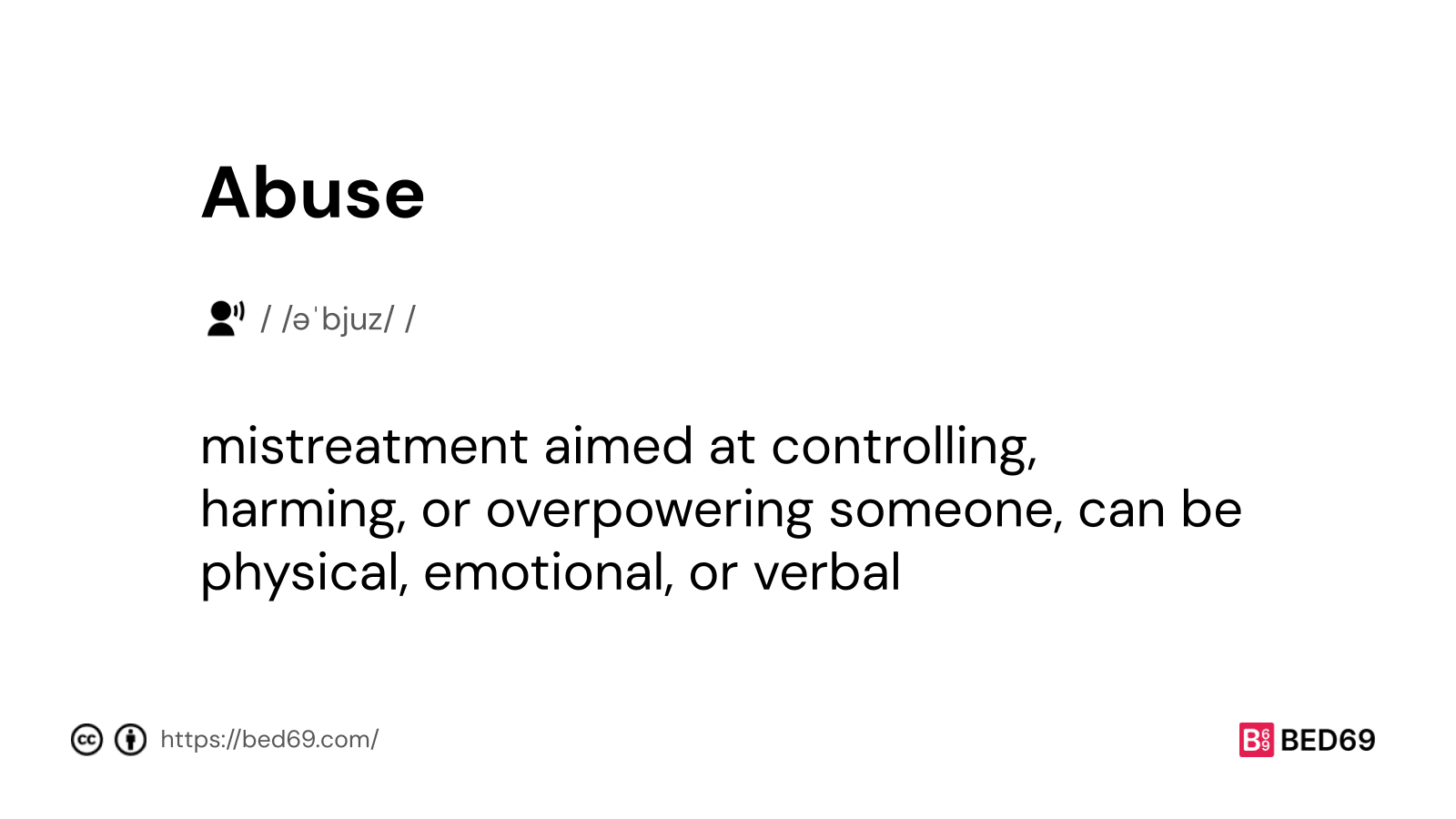What is Abuse?
Abuse refers to mistreatment aimed at controlling, harming, or overpowering someone. It can be physical, emotional, or verbal. In the context of sexual wellness, sexual abuse involves unwanted sexual acts like assault or rape, with women often being the targets. Victims may face social stigma and require support.
Abuse pronunciation: / əˈbjuz /

How does abuse impact mental health
Abuse can have profound effects on mental health, often leading to long-lasting emotional scars. Victims may experience anxiety, depression, or post-traumatic stress disorder. This can affect their ability to trust others and form healthy relationships.
Being subjected to abuse can shatter one’s self-esteem and sense of worth, leading to feelings of powerlessness and inadequacy. Coping with the trauma of abuse can be overwhelming, causing emotional distress and a sense of isolation.
Individuals who have endured abuse may struggle with feelings of shame, guilt, and fear, impacting their overall well-being. Seeking professional help and support from loved ones is crucial in overcoming the mental health challenges associated with abuse.
Recognizing signs of emotional abuse
Recognizing signs of emotional abuse can be challenging as it often leaves no physical scars. Watch out for constant criticism, manipulation, or isolation by the abuser. Emotional abuse can make you feel worthless, anxious, or constantly on edge. Pay attention to how your self-esteem and confidence are affected in the relationship.
If you find yourself often walking on eggshells to avoid conflict or feeling controlled in your actions and decisions, these could be signs of emotional abuse. It’s important to trust your instincts and seek help if you feel trapped in such a situation.
Additionally, emotional abuse can involve gaslighting, where the abuser denies your reality or makes you doubt your own perceptions. This can lead to confusion and self-doubt. Look out for patterns of behavior where you are made to feel guilty for the abuser’s actions or emotions.
Remember, emotional abuse is not always obvious, but it can have lasting effects on your mental well-being. Seek support from trusted friends, family, or professionals if you suspect you are experiencing emotional abuse. It’s essential to prioritize your emotional health and well-being in any relationship.
Explore other interesting terms:
